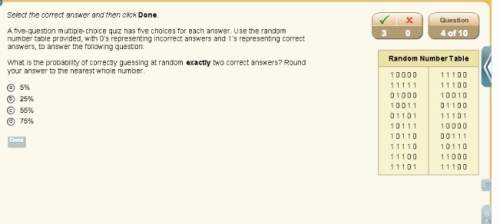
Mathematics, 28.11.2021 14:00 727
Let f be a real-valued function such that f, f1 , and f^11 are all continuous on
[0, 1]. Consider the series P∞
k=1 f( 1 /K
(a) Prove that if the series P∞
k=1 f(1
convergent, then f(0) = 0
>>f^1
(0) = 0.
(b) Conversely, show that if f(0) = f^1
(0) = 0, then the series P∞
what's the next step? if you do NOT know do not answer

Answers: 3


Other questions on the subject: Mathematics

Mathematics, 21.06.2019 16:10, marsewilliams
20 da is equal to a. 2,000 cm. b. 2 m. c. 20,000 cm. d. 20,000 mm
Answers: 1


Mathematics, 21.06.2019 19:30, tigistamare03
Acabinmaker buys 3.5 liters of oat varnish the varnish cost $4.95 per liter what is the total cost of 3.5 liters
Answers: 1

You know the right answer?
Let f be a real-valued function such that f, f1 , and f^11 are all continuous on
[0, 1]. Consider...
Questions in other subjects:

History, 02.07.2020 14:01

Mathematics, 02.07.2020 14:01

English, 02.07.2020 14:01


Mathematics, 02.07.2020 14:01


Physics, 02.07.2020 14:01

Physics, 02.07.2020 14:01

Mathematics, 02.07.2020 14:01

Mathematics, 02.07.2020 14:01




